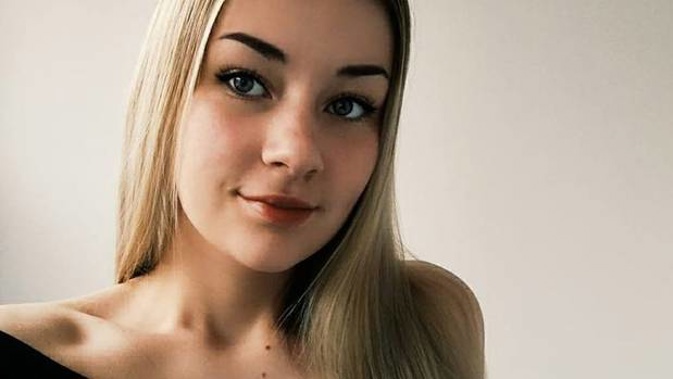
Dunedin doctor Venod Skantha's High Court trial is drawing to a close - where he's pleaded not guilty to murdering 16-year-old Amber-Rose Rush last year.
Skantha, 32, has spent the past three weeks on trial before the High Court at Dunedin accused of the murder of 16-year-old Rush and four counts of threatening to kill.
Skantha's defence lawyer Jonathan Eaton QC has just finished outlining for the jury why Skantha is innocent - and the Crown's star witness is the real killer.
He said the teen's been shown to have lied to police in the past - and in his police interviews appears to live in a fantasy world.
Justice Gerald Nation will summarise the case first thing tomorrow - before the jury is let out to deliberate Skantha's fate.
'It's a fantasy world'
The key witness in a Dunedin murder trial has been accused of living in a fantasy world.
Venod Skantha's defence is outlining its case for his innocence in his High Court trial - where he's denied murdering 16-year-old Amber-Rose Rush.
But the Defence say the Crown's key witness is the real killer.
Lawyer Jonathan Eaton QC says the teen has a documented record of lying to police - and one only has to watch his police interviews to see how he could be implicated.
"He's living in a different world to us – it's a fantasy world. In the interviews he's constantly making movie and music references, like Little Feat's 'You can get further if you commit murder'.
"He's put himself in the middle of a script where he's the star.
"I'm the bisexual sixteen-year-old teenager who's set the trap for police. How clever am I? Someone's gonna make a movie out of this. I've already got some music picked out – let's get Little Feat involved."
Eaton says the teen is constantly checking his hair in the interview videos, and is reclined in his seat.
He says it's unlikely someone who had just gone through the most traumatic experience of their lives could be that calm.
"During cross-examination, he says he can't remember 161 times. He asks 'can you repeat that?' 26 times, and asks if he can have a moment 18 times. He doesn't do that once in the interviews."
The defence pleads its case
"Venod Skantha did not kill Amber-Rose Rush - he has been falsely implicated."
Skantha's lawyers outlined their case for their client's innocence as his High Court trial draws to a close.
This is the first time the jury has heard the defence's argument in full.
Defence lawyer Jonathan Eaton QC started by talking about when Skantha was first picked up and interviewed by police on February 4 last year.
"[Skantha] doesn't even ask for a lawyer. You witnessed firsthand how he responded to a very forceful interview.
"You saw someone very calm, truthfully answering questions.
"When it became accusatory – he was hurt, offended and shocked by allegation he'd killed Amber.
"What he doesn't do is turn on the key witness. He doesn't make all sorts of allegations against [the key witness]."
Eaton said the jury can't find Skantha guilty if they have any doubts about the Crown's young key witness - a self-professed compulsive liar.
"We haven't heard the truth, the whole truth and nothing but the truth from the key witness.
"You don't muck your story up so frequently if there's been no wrongdoing."
Eaton said the teen was never even considered as a suspect by police - with his clothes never picked up by police or investigated for blood.
"This whole investigation has been blinkered."
Eaton said, as an example, he was shocked forensic investigators didn't examine wet clothes in Skantha's washing machine.
"When they went to Duxford they were told to look for three things – blood, knife and evidence of a clean-up.
"I'm assuming the forensic investigators and police were not grossly incompetent. I believe they'd been briefed on what [the key witness] has said, and he didn't mention a washing machine.
"Everything down the line has been tainted because [the key witness] was never considered a suspect."
'A massive risk to silence her'
Earlier, the Crown said the Dunedin doctor was the only one with a motive to stab a teenage girl to death and was willing to take "a massive risk" to silence her.
Defence counsel Jonathan Eaton QC this morning confirmed he did not elect to call evidence and Crown prosecutor Robin Bates made his closing address for the 10 men and two women of the jury.
They would, he acknowledged, have found the trial "difficult and confronting" and they now had more than 1000 pages of evidence and numerous exhibits before them when they came to consider their verdicts.
Bates stressed to the jury that circumstantial evidence should not be viewed as inferior.
An online exchange of messages between Skantha and Amber-Rose was an example, he said, and it formed an important piece of the Crown case.
That social-media exchange reached its climax just minutes before Amber-Rose's death.
/arc-anglerfish-syd-prod-nzme.s3.amazonaws.com/public/NQNA2M2BW5HFZNQAI3KYDCMDTM.jpg)
Dr Venod Skantha on trial for the murder of Amber-Rose Rush. Photo / Supplied
Bates said there was no question the teenager's threats immediately jeopardised the doctor's career and lifestyle.
"He took a knife, gloves, beanie, old clothes," he said.
Skantha, Bates told the court, needed a driver to take him to the victim's Corstorphine home because "it was going to be a bit messy, cutting somebody's throat", so he contacted 16-year-old friend.
Blood, however, was left in the passenger side of the defendant's silver BMW, where the prosecutor said there was no doubt the man was sitting.
While the teenage driver was key to the Crown case, Bates said there were many other pieces of evidence that showed Skantha was guilty.
The defendant's police interview two days after the incident was packed with lies, he told the court.
Skantha immediately tried to distance himself from Amber-Rose and claimed his position at the hospital was not precarious.
Bates said not only was his job important to him but he was on a final warning for misconduct.
"Amber alone could bring his career to an end; years of training, costs involved – down the drain, all over rover," he told the jury.
Skantha would have known there were other teens who could have come forward with sexual allegations of their own, Mr Bates said.
"It's not only his job that's at stake, it's his liberty," he told the court. "A rooster to a feather duster overnight."
It was no coincidence, Bates submitted, that Amber-Rose was dead within 30 minutes of her last message to Skantha and that her phone was taken.
The Crown prosecutor said whoever went inside the Clermiston Ave home in the middle of the night was taking "a massive risk".
"The person who took that risk had to have a very compelling and immediate reason to be there," he said.
He also pointed to marks in the dust on the BMW's dashboard, which the teenage driver said he drew to direct Skantha to the victim's bedroom.
Bates questioned whether the boy could have somehow orchestrated that to frame the defendant as the killer and fit his story.
"Criminal mastermind," he quipped.
He conceded the teen was "unusual" and became fatigued by the end of his testimony but said he generally gave a clear version of events which was ultimately corroborated by the evidence.
"He's not a person who would viciously kill a friend, a person who was good to him," he said.
Bates said the person who stabbed Amber-Rose, severing her carotid artery and trachea, knew what they were doing, consistent with Skantha's training as a doctor.
"[It was] a focused attack . . . to shut Amber up with one quick incision," he said.
"The person who did this was really really angry."
Amber-Rose sent her last message to her boyfriend at 11.55pm on February last year.
She was killed some time between then and 12.01am when the phone took a burst of hazy photos when it was being damaged, the Crown said.
Bates told the jurors there were three rules for trials: "common sense, common sense and common sense."
Take your Radio, Podcasts and Music with you









